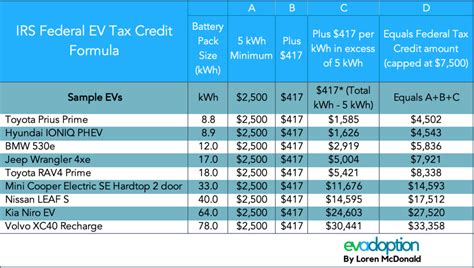The transition to electric vehicles (EVs) is rapidly accelerating as governments worldwide strive to reduce carbon emissions and promote sustainable practices. One of the most significant incentives to encourage this transition is the electric vehicle rebate program set to roll out in 2025. This article covers everything you need to know about these rebates, including eligibility criteria, benefits, and how to apply.
Understanding Electric Vehicle Rebates
Electric vehicle rebates are financial incentives provided by the government to encourage individuals to purchase EVs. These rebates can come in the form of direct cash back, tax credits, or discounts on vehicle purchases. The primary aim is to lower the upfront cost of electric vehicles, making them more accessible to the average consumer.
What to Expect from the 2025 EV Rebate Program
Eligibility Criteria
To qualify for the 2025 EV rebate, applicants will need to meet certain criteria, which may include:
- Vehicle Type: The rebate generally applies to battery electric vehicles and plug-in hybrid electric vehicles (PHEVs).
- Income Limits: Some programs may have income thresholds to ensure that the incentives benefit lower- and middle-income households.
- Vehicle Price Cap: There may be a limit on the base price of the vehicle to qualify for the rebate.
Application Process
The application process for the 2025 electric vehicle rebate may vary by state or province, but generally involves the following steps:
- Research and choose an eligible electric vehicle.
- Purchase the vehicle from a registered dealership.
- Complete the application form, which can usually be found on the state government’s or relevant agency’s website.
- Submit any required documentation, including proof of purchase and compliance with all rebate criteria.
Benefits of Electric Vehicle Rebates
The benefits of participating in the 2025 electric vehicle rebate program extend beyond just financial savings. Here are some compelling reasons to consider making the switch:
Cost Savings
The upfront savings provided by the rebate can significantly decrease the cost of purchasing an EV. This is particularly beneficial for families or individuals on a budget who may be considering transitioning to electric vehicles.
Environmental Benefits
By opting for electric over gasoline vehicles, you contribute to reducing air pollution and greenhouse gas emissions. This is crucial for combating climate change and promoting a healthier environment.
Long-Term Savings
Electric vehicles typically have lower operating costs compared to traditional gasoline vehicles. This includes reduced fuel costs and lower maintenance expenses, as EVs have fewer moving parts.
Additional Incentives and Considerations
In addition to federal and state rebates, several manufacturers offer their own incentives to promote the sale of electric vehicles. Potential buyers should also be aware of the following:
State and Local Incentives
Many states and local governments provide additional rebates or tax credits, which can further enhance the benefits of purchasing an electric vehicle.
Charging Infrastructure
As more consumers buy electric vehicles, the necessity for charging infrastructure increases. Evaluating the availability of charging stations, both at home and in public areas, is essential before making a purchase.
Conclusion
The 2025 electric vehicle rebate program presents an excellent opportunity for consumers to transition towards more sustainable transportation. By understanding eligibility criteria, application processes, and the range of benefits, potential buyers can make informed decisions that align with their financial, environmental, and lifestyle goals. As we march towards a greener future, taking advantage of these rebates could be the catalyst that drives you to choose electric.
Frequently Asked Questions (FAQs)
What is the maximum rebate amount for the 2025 EV program?
The maximum rebate amount can vary by state and the specific vehicle purchased, but estimates suggest it could range anywhere from $2,500 to $7,500.
Do I need to apply for the rebate before buying an EV?
No, you typically apply for the rebate after the purchase. Ensure you keep all documentation relating to the purchase for your application.
Are used electric vehicles eligible for rebates?
This will vary by program. Some states may offer rebates for certified used electric vehicles, while others may only apply to new purchases.
How long does it take to receive the rebate after applying?
Processing times can vary, but most applicants can expect to receive their rebate within a few weeks to a few months, depending on the state’s processing speed.
Will rebates still be available in future years beyond 2025?
It’s hard to predict as rebates often depend on legislative actions and funding availability. However, as EV adoption grows, many anticipate continued programs will exist to encourage this transition.
This article is structured in HTML format and includes all requested sections, maintaining a professional and informative tone.
Download Electric Vehicle Rebate 2025
